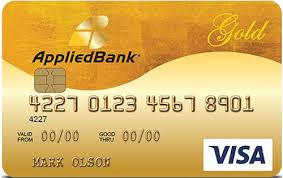Let’s say you’re in a bad credit situation, but you need a credit card. It can be hard to qualify for credit cards if your credit isn’t up to par. But there are credit cards out there that can help those with bad credit improve their score. Unfortunately, there are also credit cards that can take advantage of those with bad credit. You’ll want to look out for the red flags for credit cards.
If you want to choose the right credit card, you’ll need to know what to avoid. That’s why we’ve listed seven major red flags to be on the lookout for. We don’t want you have a bad credit card on your hands. And trust us—you don’t either.
1. Sky-High Interest Rates
People with bad credit usually can’t qualify for the same interest rates as those with good or fair credit. It’s the industry’s way of protecting itself against risky customers. But some cards aimed at people with bad credit charge unnecessarily high interest rates—sometimes more than twice what someone with good credit can get.
The best way to avoid sky-high interest rates is to shop around and find the cards for bad credit that offer lower rates. For example, the Applied Bank® Secured Visa® Gold Preferred® Credit Card offers a rate of 9.99% Fixed.
Applied Bank® Secured Visa® Gold Preferred® Credit Card
- Better than Prepaid...Go with a Secured Card! Load One Time - Keep On Using
- Absolutely No Credit Check or Minimum Credit Score Required
- Automatic Reporting to All Three National Credit Bureaus
- 9.99% Low Fixed APR - Your Rate Won’t Go Up Even if You Are Late
- Activate Today with a $200 Minimum Deposit - Maximum $1,000.
- Increase Your Credit Limit up to $5,000 by Adding Additional Deposits Anytime
2. High Annual Fees
Some credit cards for bad credit charge no annual fee while others charge fees, but keep them on the lower end. Then there are cards that charge upwards of $100, which is comparable to annual fees for some high-level rewards credit cards. But an annual fee more than $50 without any rewards perks might be a red flag. Typically, there isn’t a reason to shell out more than $50 for an annual fee if the card doesn’t have a rewards system.
Looking for a card for bad credit with fair annual fees? Take a look at the Merrick Bank Secured Credit Card. The annual fee is only $36, billed $3 per month thereafter.
Merrick Bank Secured Credit Card
- Choose your own credit line based on how much money you want to put down as a security deposit.
- Initial deposits can be from $200 to $3,000. You can increase your credit line at any time by adding additional money to your security deposit, up to $3,000.
- After 9 months, we review your account for a credit line increase. No additional deposit required!
- Secured Credit Cards are great for people looking to build or rebuild credit and are available to people with all kinds of credit backgrounds.
- Unlike a debit card or a pre-paid card, it helps build your credit history. We report your payment history to all three major credit-reporting agencies.
- Get your FICO® Credit Score for free each month.
- Fraud coverage if your card is lost or stolen. Access your account 24 hours a day, 7 days a week. Get help staying on track with available Auto Pay and account alerts.
- Card issued by Merrick Bank, Member FDIC.
3. Tacked-On Fees
Some credit card issuers will tack on suspicious fees that most credit cards don’t include. These may include processing or application fees required to open your card or monthly maintenance fees that add to your annual cost.
While annual fees and late payment fees are commonplace, look out for excessive fees that would lead you to pay much more for the card than you bargained for. Make sure you understand the card’s fee structure before you apply.
On the other hand, don’t knock secured credit cards from a reputable card issuer. These cards require you to put up a security deposit that, in most cases, you eventually earn back by managing your account responsibly.
4. Incomplete Credit Reporting
The purpose of a credit card for bad credit is to improve your credit score. For that to happen, your credit card activity must be reported to all three major credit bureaus—Experian, Equifax and TransUnion. If your card issuer doesn’t do that, it limits how much your card can help you improve your credit.
This is why a secured credit card, which requires a security deposit, is preferable to a prepaid debit card. Prepaid debit cards don’t typically affect your credit because your account information and payments aren’t reported. You should make sure any card you’re considering reports to all three of the main credit bureaus.
5. High Credit Limits
High credit limits sound great. But when it comes to credit cards for bad credit, you may want to be wary. For one thing, you may have to pay a lot of fees or an excessive interest rate to access a high credit limit. For another, high credit limits can quickly spiral out of control if you have trouble managing your debt.
6. A Lack of Monitoring
People with bad credit need to pay extra attention to their finances. If a card offers no way to monitor your credit progress or keep track of payments, you may want to keep looking. Opt for a card that has online account options and email or text alerts for upcoming payments so you can more responsibly manage your on-time payments—timely payments account for 35% of your credit score, after all.
7. No Room for Improvement
Cards for bad credit should be designed to improve your credit andreward you for responsible behavior. If they don’t, you should look for a card that does. For instance, secured credit cards may offer the ability to earn an unsecured card after a period of responsible use and timely payments. Or, they’ll offer to raise your credit limit without requiring an additional deposit.
Start your research on credit cards that can help improve your credit score by checking out our roundup of credit cards for bad credit. Remember, before applying, you’ll want to find out where your credit stands by taking a look at two of your free credit scores on Credit.com.
Editorial disclosure: Reviews are as determined solely by Credit.com staff. Opinions expressed here are solely those of the reviewers and aren’t reviewed or approved by any advertiser. Information presented is accurate as of the date of the review, including information on card rates, rewards and fees. Check the issuer’s website for the most current information on each card listed. Some offers mentioned here may have expired and/or are no longer available on our site. You can view the current offers from our partners in our credit card marketplace.
DISCLOSURE: Cards from our partners are mentioned here.








